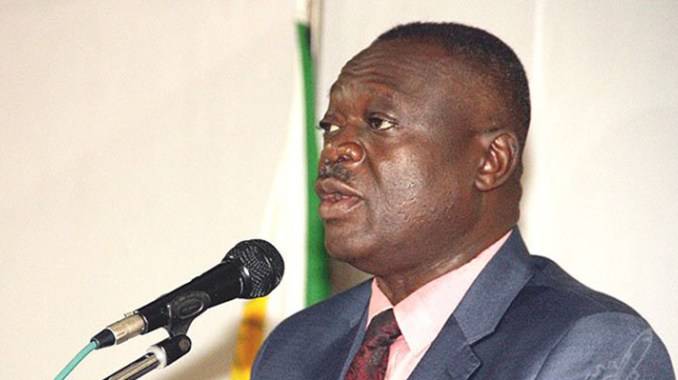
Leroy Dzenga, Harare Bureau
The late Minister of Lands, Agriculture, Water and Rural Resettlement, Perrance Shiri, was a busy man.
He was in charge of the single most critical portfolio in Zimbabwe, agriculture, given its centrality to national food security, job creation and the entire manufacturing sector.
In this role, he looked to be in his natural space.
There are more images of the late Minister Shiri in worksuits than there are of him in a suit, which is the standard garb for ministers.
Despite his busy schedule, he was awake to the realities of people in rural communities, which form the backbone of food sustenance in Zimbabwe.
Since the first Covid-19 case was reported in Zimbabwe, there has been subdued economic activity and the rural folk have not been spared.
But Minister Shiri would engage corporates and help mobilise resources for the rural folk in their time of need, personally seeing to it that they had received the consumables.
One community that was close to his heart was Rushinga.
Minister Shiri would regularly visit the place to assist the people.
In one of his numerous visits, the late Minister Shiri declared that the underprivileged were close to his heart.
“Even the creator is happy with love being shown here and he is seeing the underprivileged receiving help. When these people were chosen, no political affiliation was considered and no church denomination was discriminated against.
“Only the less privileged were considered,” said Minister Shiri.
On more than six occasions, he visited the area with assistance.
This was a culture he had begun way before Covid-19 broke out in Zimbabwe.
In 2018, when he retired from the Air Force, he promised to give his pension to the Rushinga community.
Minister Shiri was quoted in the media as saying: “I told them (Rushinga residents) that I have set aside my pension so that I can buy 30 cattle to be distributed across the province.”
At a policy level, his love for the rural community was evident.
It was under his watch that the Government adopted the Pfumvudza Concept, a rural focused agricultural concept which he left in its early implementation stages.
Pfumvudza was a concept formulated by the private sector and perfected by the Government to benefit rural communities.
It seeks to have a dual effect of creating a situation of self-sustenance for rural families and adding to the national grain reserve.
Explaining the idea, Minister Shiri said an average family of four to six required a bucket of maize every week and could produce food to last it a whole year on a small piece of land.
“An average of about four to six members consumes a bucket of maize (20 kg of maize-meal) a week and if you use the potholing method you need 28 holes in which you sow two seed units per hole, you will get a total of 56 cobs and that is enough for one week,” he said.
He was a hands-on person who would break down policy effects in a detailed manner.
“Each week the family can feed from 28 holes and with the 52 rows yielding an average of one tonne, while a family of four to six consumes about half a tonne, food security is guaranteed. It is possible to save half a tonne of maize, which can be sold.
“By using this concept, a farmer can also irrigate crops using a bucket and get a bumper harvest as opposed to planting maize on a large area without adequate resources and end up getting one bucket or less per hectare,” said Minister Shiri.
Perhaps his greatest legacy in agriculture will be how he made sure that under him, communal and commercial farmers got equal attention from policy formulation to input distribution.
